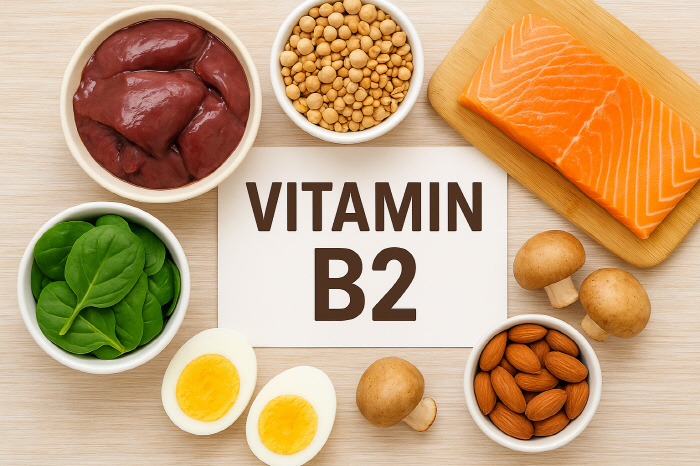Up to 49% risk of dementia if you consume more of this among vitamin B groups ↓
|
Vitamin B groups are known to help regulate energy metabolism as well as homocysteine, a compound related to vascular and brain health.
The U.S. health media 'Eating Well' recently reported the results of a Japanese research team published in the European Journal of Clinical Nutrition.
According to the results of the study, follow-up observations by the Japanese research team showed that riboflavin intake was inversely proportional to the risk of dementia disorders.
The team analyzed data from the Community-Based Community Circulatory Risk Study (CIRCS), which enrolled 4,171 Japanese adults aged 40 to 69, for a median of 15.4 years, comparing those who consumed the least vitamin B with those who consumed the most, and calculating the likelihood of developing dementia by considering factors such as age, sex, body size, smoking, alcohol consumption, drugs, and diet.
Analysis showed that those who consumed the most riboflavin (vitamin B2) had up to 49% lower risk of developing dementia than those who consumed the least. Folic acid and vitamin B6 also appeared to be about 20% lower in risk, whereas vitamin B12 showed no clear association. However, this study captured only vitamin intake from foods and beverages, not supplements. The association of riboflavin with B6 was stronger among participants who did not undergo stroke. The research team explained that these results suggest that vitamins may be related to non-vascular dementia.
Meanwhile, riboflavin is abundant in dairy products such as milk and yogurt, eggs, lean meat and fish, mushrooms, almonds, and spinach. In addition, vitamin B6 is contained in poultry, salmon, potatoes, bananas, chickpeas and pumpkins, and folate is a key nutrient such as spinach, asparagus, avocado, citrus, and beans.
This article was translated by Naver AI translator.




